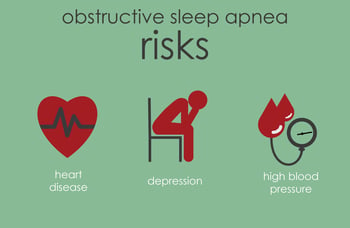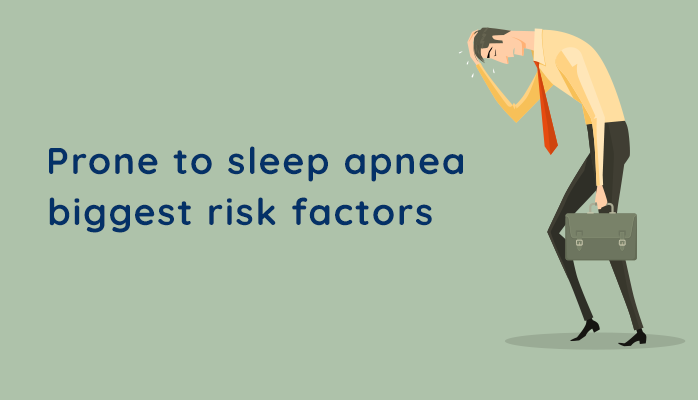Sleep apnea is a medical condition characterized by repeated interruptions in breathing during sleep, often occurring 40-100+ times per night. These interruptions cause temporary awakenings to resume breathing, which can disrupt the quality of your sleep without you even realizing it in the morning.
There are three types of sleep apnea:
- Obstructive sleep apnea (OSA) - a physical obstruction blocks your attempts to breath (back of throat collapses, blocking airway)
- Central sleep apnea (CSA) – your brain doesn’t send proper signals to muscles that control breathing
- Complex sleep apnea – you have markers of both CSA and OSA
Over time, sleep deprivation caused by sleep apnea lead can to:
- Shorter life expectancy
- Lower quality life
- Other medical complications
Symptoms of Sleep Apnea
 Sleep apnea symptoms can be difficult to notice, but some common ones to look out for are [WebMD]:
Sleep apnea symptoms can be difficult to notice, but some common ones to look out for are [WebMD]:
- Bed partner hears you repeatedly stop breathing throughout night
- Loud, chronic snoring
- Morning exhaustion
- Morning headaches
- Excessive daytime sleepiness
- Nighttime choking/gasping
- Mood disruptions, such as constant irritability, brain fog, etc.
- Morning dry mouth
- Irritability
- Intractable depression or anxiety
- Reduced sex drive
If you live alone, it can be challenging to notice these symptoms. Bed partners are normally key for early diagnosis of sleep apnea. If you don't have a bed partner, you may not be aware of the nighttime snoring or choking, but you may notice the other symptoms of a morning headache or daytime fatigue.
Primary Risk Factors for Sleep Apnea
Physical:
- Being overweight or obese
- Having a thick or large neck
- Having smaller airways in your throat, nose or mouth.
- Having enlarged tonsils
- Having a deviated septum
- Having a large tongue
Medical:
- Having diabetes
- Genetics/family history
- Having certain medical conditions that cause sleep apnea (rare)
- Requiring certain medications for health reasons (such as pain relievers)
- Age/Sex (older men are most common demographic for sleep apnea)
- Having high blood pressure
- Chronic nasal congestion
Lifestyle:
- Sleeping on your back
- Smoking
- Drinking excess alcohol
- Narcotic use
Treatment for Sleep Apnea
The vast majority of people who suffer from sleep apnea treat it with continuous positive airway pressure (CPAP) therapy, which provides enough pressure to keep the airways open during exhalation. Surgery is usually not needed unless the probably is anatomic, such as large tonsils.
For mild cases of sleep apnea, non-medical interventions may be recommended by your doctor.
If you live in Alaska and are concerned that you may suffer from sleep apnea, please click the orange button below to take a free online sleep test and speak with one of our sleep health professionals.


